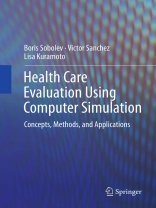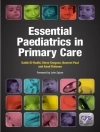The purpose of this book is to place computer simulation studies within the paradigm of intervention research that is concerned with comparing the outcomes of health care delivered under different policies. This book presents computer simulation as a tool for testing various policy alternatives that have been developed by decision-makers within health care systems. This approach differs from the use of computer simulation in operations research, where simulation helps determine the configurations of a system that will allow it to function optimally. Although simulation of health care processes is not new, few health care systems have used simulations as a basis for re-engineering the delivery of health services. There is growing appreciation that the complexity of health care processes exceeds the capacity of individual disciplines–health services research, health economics, or operations research–to guide health care reform. In this book, the authors focus on bringing the methodological rigor of evaluative research to the design and analysis of such simulation studies. The book is intended as a reference for health services researchers. It offers a comprehensive description of the methodology of conducting simulation studies in evaluation of service alternatives in surgical care using discrete-event models, including the steps for identifying the clinical and managerial activities of the perioperative process, determining the model requirements, implementing simulation models, designing simulation experiments and analyzing the experimental data, and interpreting and reporting results. The book also offers examples of specific aspects of conducting simulation experiments: how to determine the number of runs needed to estimate the effect of implementing a health care policy; how to allocate the number of runs to study groups in simulation experiments aiming to evaluate policy or management alternatives; and how to use statistical analysis toestimate, interpret, and report effect sizes.
Table des matières
Part I. Care processes.- Chapter 1. Introduction.- Chapter 2. Different views of care process.- Chapter 3. Taxonomy of peri-operative activities.- Chapter 4. UML diagrams for describing care processes.- Part II. Simulation Methods.- Chapter 5. Review of approaches to simulation in healthcare.- Chapter 6. Discrete-event simulation of patient flow.- Part III. Planning Experiment.- Chapter 7. Framework of intervention study.- Chapter 8. Design of a simulation study.- Chapter 9. Performance measures at the cluster level.- Chapter 10. Performance measures at the patient level.- Part IV. Evaluation Using Simulation Experiments.- Chapter 11. Reporting results of a simulation study.- Chapter 12. Evaluation at the cluster level.- Chapter 13. Evaluation at the patient level.- Part V. Case Studies.- Chapter 14. The simulation model.- Chapter 15. Pooled appointment lists.- Chapter 16. Shortest appointment list.- Chapter 17. Pre-booking elective cases.- Chapter 18. Pre-surgical screening.- Chapter 19. Anesthesiology consultations.- Chapter 20. Managing ICU beds.- Chapter 21. Discharge planning.












